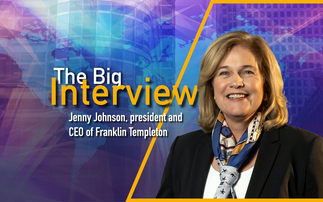Firms raced to announce plans for initial public offerings (IPOs) this week, despite increasing concerns about the valuation of shares in the newly-floated companies.
Insurance and holiday provider Saga raised £550m in an IPO this morning. The firm has exposure to the growing army of over-50s, who also tend to be wealthier than younger generations. Many private investors are believed to be its customers, and the IPO was believed to be oversubscribed.
However, Saga sold shares at 185p - significantly lower than its initial suggested pricing of 245p. The price cut was attributed to pressure from institutional investors, and a bid to ensure the share price will rise after flotation.
Lombard Odier Golden Age fund manager Johan Utterman said the pricing of the IPO demonstrates valuation scrutiny: “Saga has the opportunity to further expand into healthcare and wealth management, two initiatives which could drive additional growth.
“However, the positioning of Saga as a 'specialised consumer services' company may make the IPO more challenging to place with institutional investors since the vast majority of EBITDA comes from financial services. UK non-life insurers trade on lower multiples than branded consumer stocks.”
There may be better opportunities to gain exposure to Saga in the months ahead, he added.
Saga’s float comes amid a flurry of recent IPO announcements, including easyJet spin-off easyHotel, property website Zoopla, financial services firm River & Mercantile, and budget airline Wizz Air.
However, in another sign of sensitivity over valuations, Fat Face pulled out of an announced float. Having hoped to raise £110m, the clothes retailer blamed “equity market conditions” for the sudden withdrawal. Shares in Infinis Energy, which floated last November, and Pets at Home, which floated in March, are both trading below price at floatation.
Most notably, Royal Mail’s share price plunged 9% after the release of its first full-year results since IPO, despite 12% year on year profit growth. The fall has been blamed on the chief executive’s warning of competition pressures, and a squeeze on profit margins. Shares in Royal Mail were priced at 330p each at IPO, jumping sharply as soon as the company listed. Business secretary Vince Cable was later forced to explain to a select committee of MPs why he believed the business had not been undervalued. He blamed "froth and speculation" for the rising share price.
TD Direct Investing chief executive Stuart Welch said the initial frenzy of short-term investors appears to have been replaced by those with a longer-term outlook.
He said his clients’ buying activity had changed in recent months: “Our data shows that in April 2014, 53% of all our Royal Mail trading was sells, while 47% related to investors buying the stock. This is a real contrast with the initial frenzied activity last October, when 82% of Royal Mail trades were sales of shares, with just 18% being buys.”












